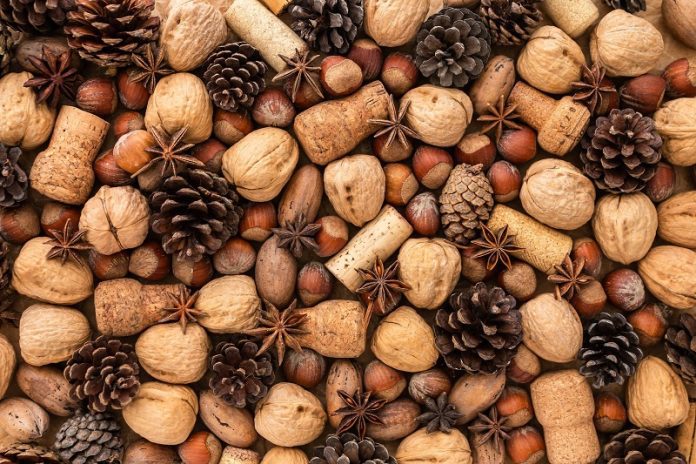
Scientists from Sungkyunkwan University and elsewhere found that eating nuts is linked to reduced risks of the gut lesion and cancer.
Nuts are dense little packages of fat and protein, with most fat being the healthful, unsaturated kind.
They don’t contribute much in the way of vitamins but make up for it by supplying respectable amounts of potassium, magnesium, and several other required minerals.
Previous research has suggested that nuts are a great source of many nutrients.
They are loaded with antioxidants, may aid weight loss, may reduce cholesterol and triglycerides, and be beneficial for type 2 diabetes and metabolic syndrome.
Some recent studies have found that nut intake may benefit gut problems including stomach cancer and infection.
However, there are no studies examining the effect of nut intake on gastric intestinal metaplasia (GIM), a gut lesion and risk factor for cancer.
In the current study, researchers examined more than 53000 South Korean men and more than 33000 women.
They analyzed the risk of GIM according to the frequency of nut intake (peanuts, pine nuts, and almonds only) as the following: rare (<1 serving/month), ≤1 serving/month and <1 serving/week, ≤1 serving/week and <3 serving/week, ≤3 serving/week and <5 serving/week and ≥5 serving/week where one serving is 15 g.
The team found after 5.3 years of follow-up, 5073 people had GIM.
In men, compared with rare nuts intake, greater nuts intake was linked to a lower risk of GIM.
The team also found that nuts intake was linked to a lower risk of GIM. The effect was stronger in men without obesity. However, this association was not found in women.
Based on the findings, the researchers conclude that increased nuts intake is linked to a decreased risk of GIM in working-aged Korean men.
The research was published in Nutrition Bulletin and conducted by Sung Keun Park et al.
Copyright © 2023 Scientific Diet. All rights reserved.





